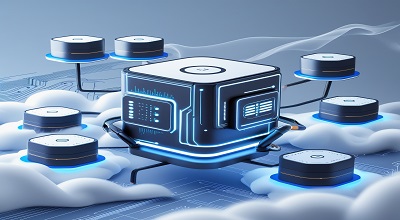Docker and Cloud Deployment
Docker and Cloud Deployment: The world of DevOps and cloud computing is evolving rapidly, and Docker remains a cornerstone of modern application deployment. As we move into 2025, new advancements in containerization, orchestration, and cloud-native technologies are reshaping how businesses deploy and manage applications.
At ZoomDoors.com, we explore the latest trends in Docker and cloud deployment, helping developers and enterprises stay ahead of the curve.
Why Docker and Cloud Deployment Matter in 2025?
1. The Rise of Microservices and Serverless Architectures
- Businesses are increasingly adopting microservices for scalability.
- Serverless computing reduces infrastructure management overhead.
2. Cost Efficiency and Scalability
- Cloud platforms like AWS, Azure, and Google Cloud offer auto-scaling.
- Docker optimizes resource usage, reducing operational costs.
3. Faster CI/CD Pipelines
- Docker + Kubernetes enables seamless continuous deployment.
- Automated rollbacks and A/B testing improve deployment reliability.
Latest Trends in Docker for 2025
1. Docker with WebAssembly (Wasm)
- Lightweight containers with near-native performance.
- Improved security with sandboxed execution.
2. AI-Optimized Containers
- Machine learning models deployed as Docker containers.
- Auto-scaling AI workloads in Kubernetes clusters.
3. Edge Computing with Docker
- Low-latency deployments using Docker on edge devices.
- IoT applications benefit from containerized edge workloads.
4. Enhanced Docker Desktop Features
- Improved GUI tools for local development.
- Seamless Kubernetes integration for testing.
5. Green Computing Initiatives
- Energy-efficient container orchestration.
- Cloud providers optimizing for carbon-neutral deployments.
Cloud Deployment Strategies for 2025
1. Multi-Cloud and Hybrid Cloud Deployments
- Avoiding vendor lock-in with multi-cloud strategies.
- Hybrid cloud for balancing security and scalability.
2. GitOps for Infrastructure as Code (IaC)
- Automated deployments using Git repositories.
- Tools like ArgoCD and Flux for GitOps workflows.
3. Zero-Downtime Deployments
- Blue-green deployments and canary releases.
- Kubernetes-native rolling updates.
4. Cost-Optimized Cloud Deployments
- Spot instances for non-critical workloads.
- Autoscaling policies to minimize costs.
Best Practices for Docker and Cloud Deployment
1. Optimizing Docker Images
- Use multi-stage builds to reduce image size.
- Minimize layers for faster builds.
2. Effective Kubernetes Management
- Horizontal Pod Autoscaling (HPA) for dynamic workloads.
- Resource limits to prevent cluster overuse.
3. Monitoring and Logging
- Prometheus + Grafana for real-time monitoring.
- Centralized logging with ELK Stack or Loki.
4. Disaster Recovery Plans
- Automated backups of persistent volumes.
- Cross-region failover strategies.
Security Considerations
1. Container Security Best Practices
- Scan images for vulnerabilities (using Trivy or Clair).
- Least privilege principle for container permissions.
2. Securing Cloud Deployments
- IAM roles with minimal permissions.
- Encryption at rest and in transit.
3. Compliance and Governance
- GDPR, HIPAA, and SOC2 compliance.
- Automated policy enforcement with OPA (Open Policy Agent).
Case Studies: Success Stories
1. Netflix: Microservices at Scale
- How Netflix uses Docker and Kubernetes for global streaming.
2. Tesla: Edge Computing with Docker
- Real-time AI processing in Tesla vehicles using containers.
3. Spotify: Cloud-Native CI/CD
- Zero-downtime updates with Kubernetes and Docker.
Future Predictions
1. Quantum Computing and Containers
- Quantum-resistant encryption for secure deployments.
2. Fully Autonomous DevOps
- AI-driven deployment pipelines with self-healing systems.
3. Decentralized Cloud Deployments
- Blockchain-based cloud infrastructures.
FAQs
1. Is Docker still relevant in 2025?
Yes! Docker remains a key player in containerization, especially with WebAssembly and AI integrations.
2. What is the best cloud platform for Docker deployments?
- AWS ECS/EKS, Azure AKS, and Google GKE are all strong choices.
3. How does Docker improve security in the cloud?
- Isolated containers, image scanning, and runtime protection enhance security.
4. Can Docker run on edge devices?
Absolutely! Docker supports ARM architectures, making it ideal for IoT and edge computing.
5. What are the alternatives to Kubernetes in 2025?
- Nomad, Docker Swarm, and OpenShift are still viable, but Kubernetes dominates.
Conclusion
As we step into 2025, Docker and cloud deployment continue to evolve, offering better scalability, security, and efficiency. By adopting the latest trends and best practices, businesses can stay competitive in a rapidly changing digital landscape.

